The updated Morris County Coordinated Human Services Transportation Plan (CHSTP) provides an integrated and collaborative framework for providing human services transportation in Morris County, New Jersey.
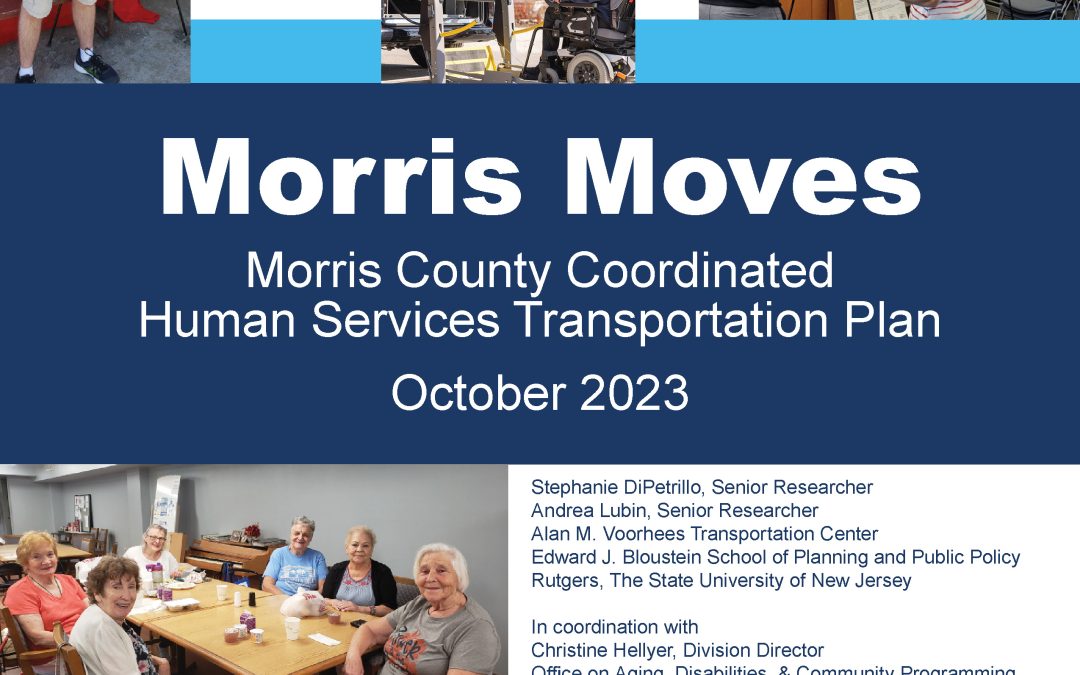

The updated Morris County Coordinated Human Services Transportation Plan (CHSTP) provides an integrated and collaborative framework for providing human services transportation in Morris County, New Jersey.
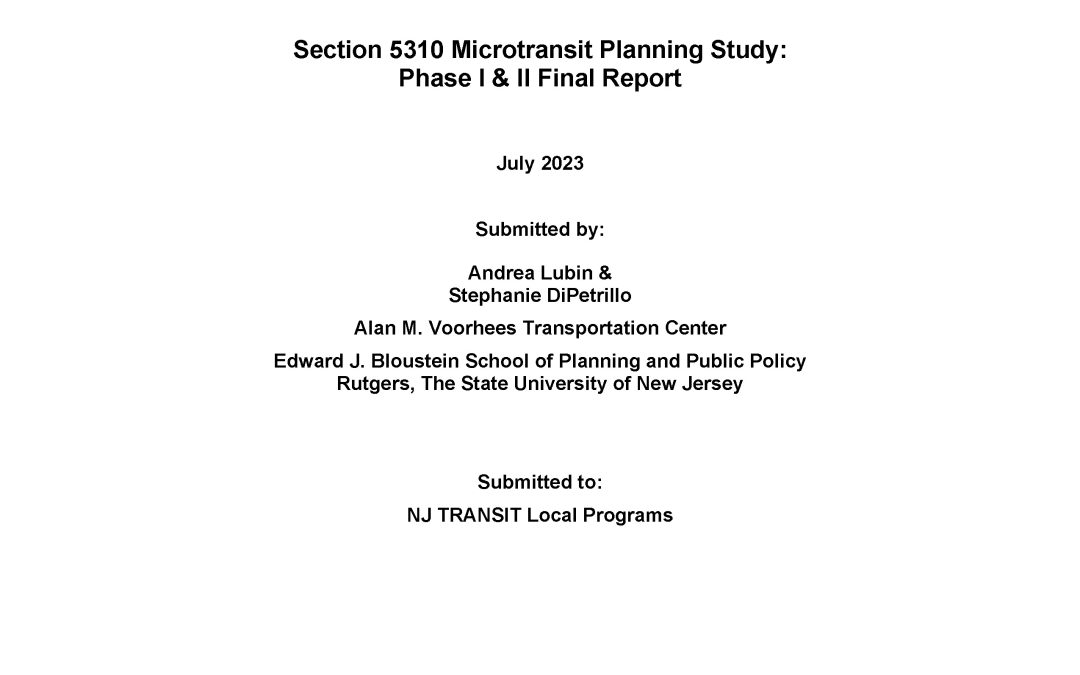
This planning study sought to investigate the feasibility of microtransit as a cost-effective means to meet demand for more seamless, inter-county trips among New Jersey’s county community transit customers. For the purposes of this study, the definition used for microtransit has been small scale, on‐demand, dynamic-route, shared transit services such as shared ride taxis and other non-fixed route operations.
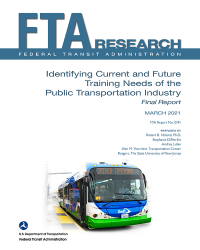
This report identifies the training needs of the public transportation industry.
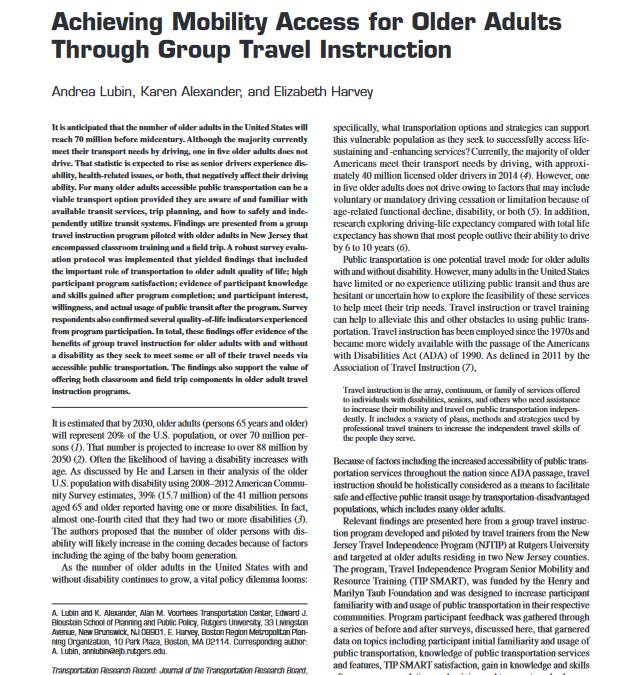
For many older adults accessible public transportation can be a viable transport option provided they are aware of and familiar with available transit services, trip planning, and how to safely and independently utilize transit systems. Findings are presented from a group travel instruction program piloted with older adults in New Jersey that encompassed classroom training and a field trip.
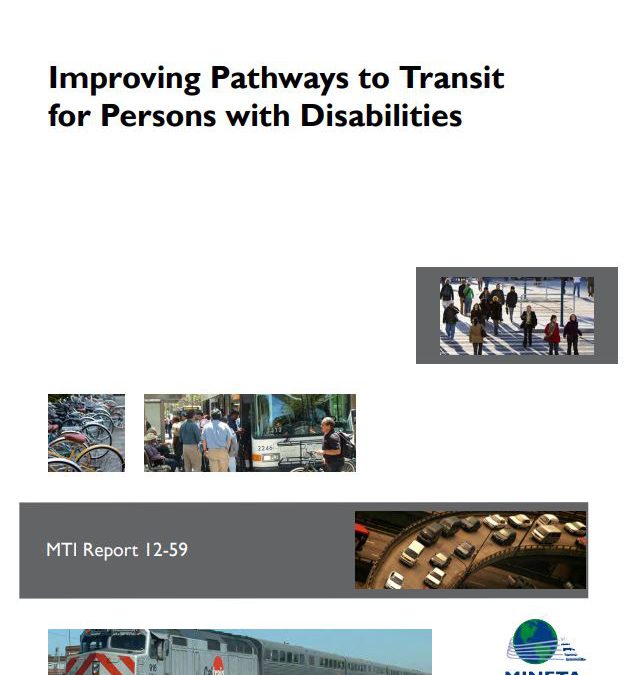
This research study explores, through case study work, efforts that have been effective in improving pathways to transit for persons with disabilities.
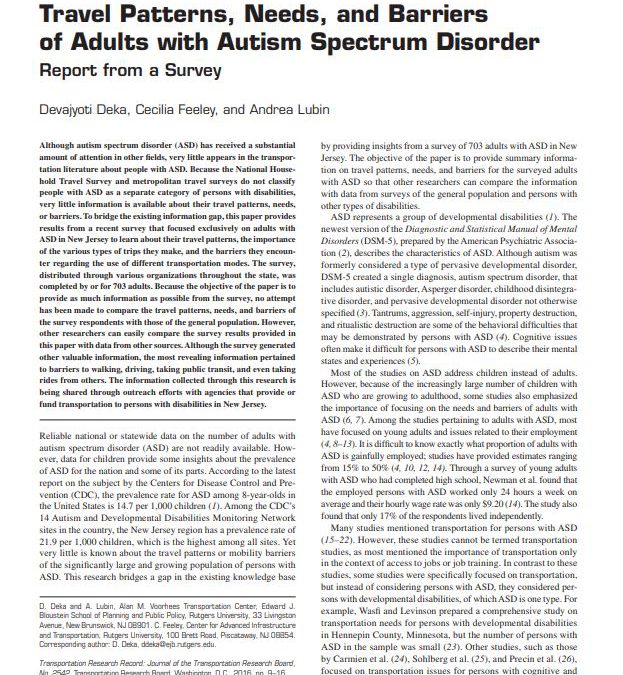
To bridge the existing information gap, this paper provides results from a recent survey that focused exclusively on adults with ASD in New Jersey to learn about their travel patterns, the importance of the various types of trips they make, and the barriers they encounter regarding the use of different transportation modes.
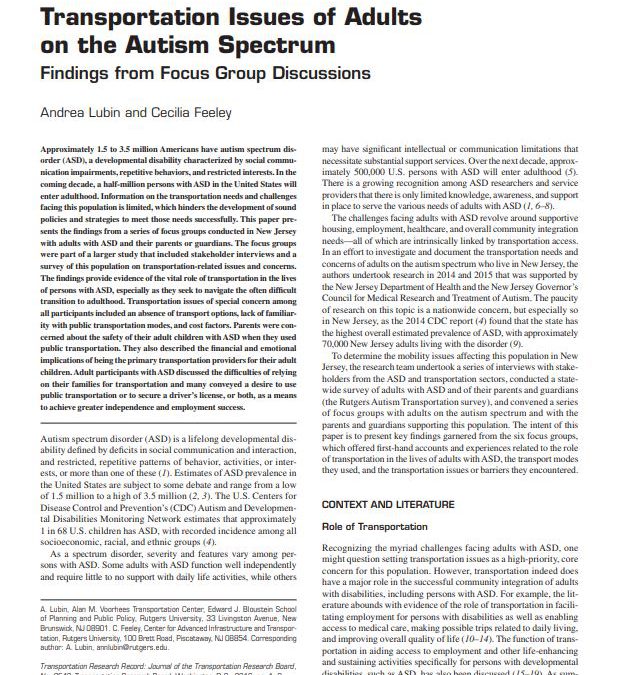
This paper presents the findings from a series of focus groups conducted in New Jersey with adults with ASD and their parents or guardians.
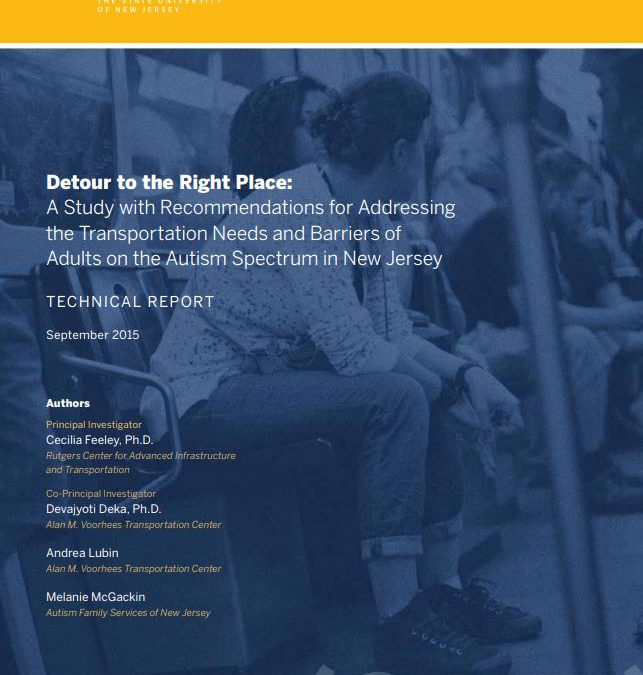
Explores and documents transportation needs and barriers of NJ adults on the Autism spectrum.
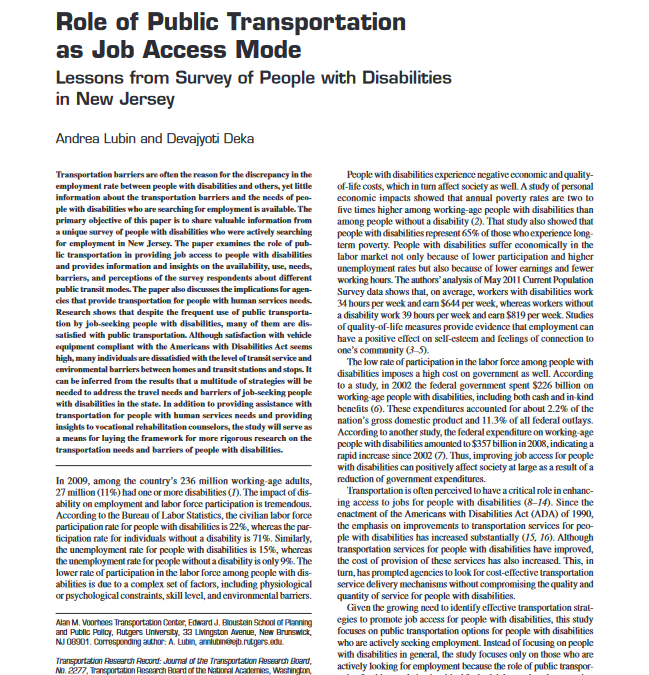
The primary objective of this paper is to share valuable information from a unique survey of people with disabilities who were actively searching for employment in New Jersey.
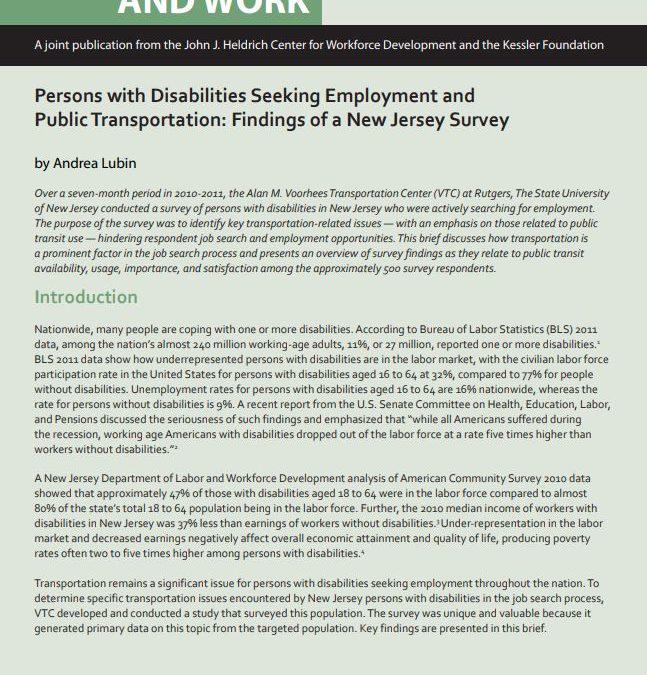
This brief discusses how transportation is a prominent factor in the job search process and presents an overview of survey findings as they relate to public transit availability, usage, importance, and satisfaction among the approximately 500 survey respondents.
Since its creation in 1979, NJ TRANSIT has grown into the geographically largest public transit system in the United States. Over more than four decades, the agency’s financial structure has shifted in response to changing state and federal priorities—shaping service...
Objective While fatal crashes are available through the Fatality Analysis Reporting System (FARS) and are readily available to the public, many states do not make their crash data easily accessible for the public and the research community. The public has an interest...
Through this research, NJ TRANSIT sought to understand how women and members of the lesbian, gay, bisexual, transgender, queer plus community, sometimes referred to as sexual and gender minorities (SGMs) travel on NJ TRANSIT so the agency can provide better...
Recent advances in biometric sensing technologies, such as eye tracking, heart rate trackers, and galvanic skin response (GSR) sensors, offer new opportunities to measure pedestrian stress level and their travel experiences in real-time. Uncertainty remains about...